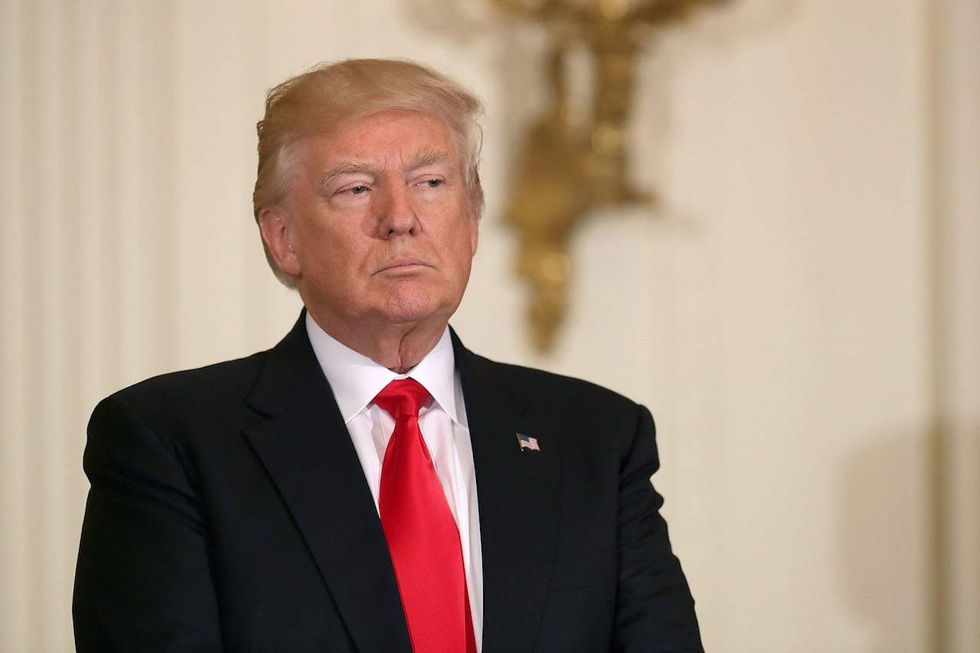
President Donald Trump took to Twitter on Tuesday to defend sharing “facts” with the Russians after the Washington Post reported that the president revealed highly classified information to the Russian foreign minister and ambassador in a meeting at the White House last week. (Chip Somodevilla/Getty Images)


